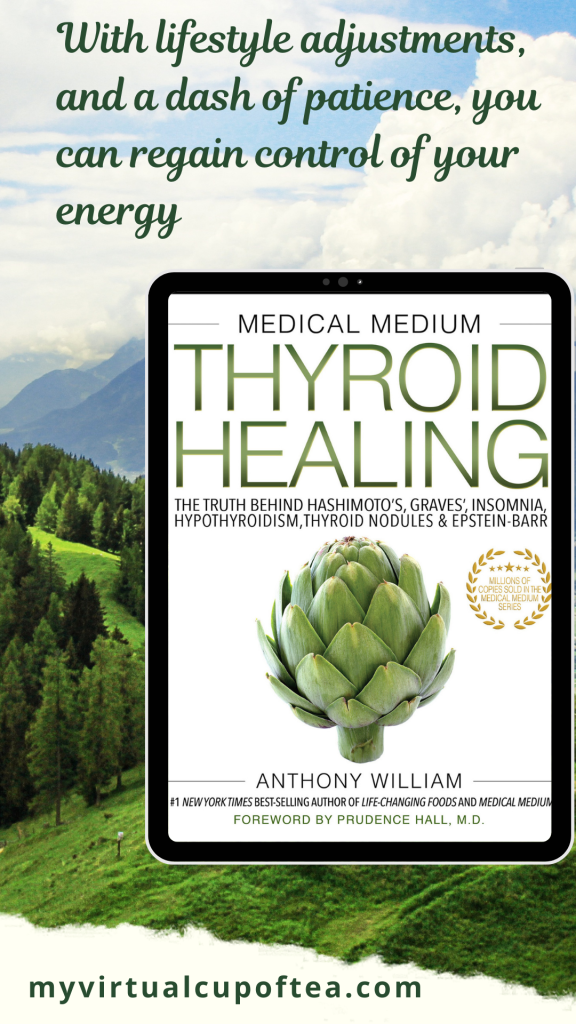Hey there! Today, we’re diving into a topic that might not be as familiar as your morning coffee but is just as essential to your body’s well-being: Hashimoto’s Disease. If you’ve ever wondered why your energy levels are on a roller coaster or why your jeans seem to be conspiring against you, this might be the answer you’ve been searching for.

What Is Hashimoto’s Disease, Anyway?
Hashimoto’s Disease, also known as Hashimoto’s Thyroiditis or simply “Hashi’s,” is an autoimmune condition that targets your thyroid gland like the enemy. Your thyroid, a small butterfly-shaped gland located in your neck, plays a starring role in regulating your metabolism. It’s the operator of your body, directing everything from your energy levels to your weight.
In Hashimoto’s Disease, your immune system goes rogue. Instead of protecting you from invaders like it should, the immune system mistakenly attacks healthy cells in your body, attacking your thyroid gland. This autoimmune assault leads to inflammation and gradually damages your thyroid, affecting its ability to produce thyroid hormones. As a result, you may experience a wide range of symptoms affecting your life.
*This post contains affiliate links and I will be compensated if you make a purchase after clicking on my links with no extra cost for you.
The Telltale Signs of Hashimoto’s
So, how do you know if Hashi’s is knocking on your thyroid’s door? Here are some common symptoms to watch out for:
- Fatigue: You wake up feeling like you’ve run a marathon in your sleep. No amount of coffee helps, and naps become your best friend.
- Weight Gain: Even with a balanced diet and regular exercise, those extra pounds just won’t budge. Thanks, thyroid!
- Mood Swings: You’re experiencing mood swings that would put a hormonal teenager to shame. One moment, you’re happy as a clam; the next, you’re ready to cry over spilt milk (literally).
- Dry Skin and Hair: Your skin feels like it’s been doused in sandpaper, and your hair is trying to impersonate a haystack.
- Cold Intolerance: While your friends are rocking shorts and flip-flops, you’re bundled up like you’re about to trek through the Arctic.
- Brain Fog: You can’t remember where you left your keys, let alone the name of that movie you wanted to watch last night.
Remember, not everyone with Hashimoto’s will experience all these symptoms, which can vary in intensity. It’s like a thyroid-themed buffet where you get to pick your own combination of side effects.

Getting Diagnosed and Taking Charge
If these symptoms sound all too familiar, it’s time to chat with your doctor. They’ll run blood tests to check your thyroid hormone levels and antibodies. Elevated levels of thyroid antibodies are a strong indicator of Hashimoto’s Disease.
Once you’ve got that official Hashi’s badge, don’t despair! Managing this thyroid troublemaker is entirely possible. Here’s how:
- Medication: Most folks with Hashimoto’s will need to take synthetic thyroid hormone medication, like levothyroxine. This is also my case. This helps replace the hormones your thyroid can no longer produce. Your doctor will monitor your hormone levels and adjust your dosage as needed.
- Dietary Changes: Some people find relief from Hashimoto’s symptoms by making dietary adjustments. Reducing gluten and dairy intake is a common approach, as these foods may exacerbate inflammation in some individuals. Since I cut on gluten and dairy, I feel much better. However, consulting with a healthcare professional or registered dietitian is essential before making significant dietary changes.
- Stress Management: Stress can be a real troublemaker for Hashimoto’s. Practising stress-reduction techniques like Yoga, meditation, or simply taking time for yourself can be beneficial. I take yoga lessons, and I take time for myself to read books. When doing these things, I feel much more relaxed.
- Regular Exercise: An active lifestyle can help maintain a healthy metabolism and boost your overall well-being. Plus, it’s an excellent stress-buster. We live on a seashore, and I spend my summers at the beach whenever possible. Swimming is an excellent exercise as it involves the whole body. I take long walks near the sea during the year, breathing the clean, fresh air.
- Sleep: Prioritize quality sleep. A consistent sleep schedule and creating a relaxing bedtime routine can work wonders for your energy levels. I need a minimum of 7 hours of sleep. I feel the best when I get to sleep 8 or 9 hours.
- Stay Informed: Knowledge is power. Educate yourself about Hashimoto’s Disease so you can advocate for your health effectively. Join support groups or online communities to connect with others who are on a similar journey.

Hashimoto’s and Everyday Life
Living with Hashimoto is like having an unpredictable roommate. You might not always get along, but you can coexist peacefully with some effort. Here are a few more tips for navigating the Hashimoto’s journey:
- Listen to Your Body: Pay attention to how you feel, and don’t push yourself too hard on low-energy days. Rest when needed, and remember that self-care is not selfish. Read a book or write a diary like I do or anything that satisfies you and helps you gain energy.
- Regular Check-Ins: Keep up with regular doctor appointments and blood tests to ensure your treatment plan remains adequate. Taking pills daily can be an annoyance, but sometimes, it is necessary to keep your hormone levels good.
- Be Patient: Finding the correct medication dosage and lifestyle adjustments can take time. Be patient with yourself and your body. Vitamin supplements help me control my health, taking vitamin B complex and natural stress reliefs like passiflora plant in capsules combined with Yoga.
- Support System: Lean on friends and family for emotional support. They may need help understanding Hashimoto, but having a shoulder to lean on can make a difference. This disease is genetically predisposed, so you may have someone in your family with the same difficulties with whom you can exchange your experience and advice.
Seek support and find encouragement
You’re not alone in your Hashimoto’s journey. Many people worldwide are dealing with the same challenges and triumphs. Seek out local or online support groups where you can share your experiences, ask questions, and find encouragement. Remember, you’ve got this!
Hashimoto’s Disease might be a thyroid troublemaker, but it’s manageable. With the right treatment plan, lifestyle adjustments, and a dash of patience, you can regain control of your energy, mood, and overall well-being. Don’t let it hold you back from living your best life – you have too many adventures to embark on!

Myvirtualcupoftea.com is a participant in the Amazon Services LLC Associates Program, an affiliate advertising program designed to provide a means for sites to earn advertising fees by advertising and linking to Amazon.com and affiliated sites. This post might also contain affiliate links to other sites. And if you purchase anything using these links, I earn a little commission with no extra costs for you. Thank you for supporting my blog!




1 thought on “Hashimoto’s Disease: The Thyroid Troublemaker You Need to Know About”
Comments are closed.